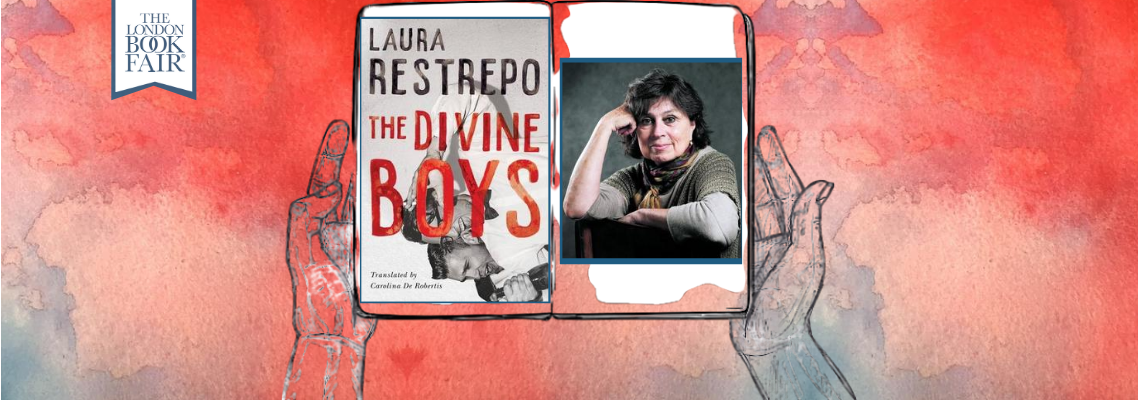Laura Restrepo’s award-winning book, The Divine Boys, is set in Bogotá, Columbia, and revolves around the friendship of five men. The Tutti Frutti quintet. The members – Muñeco, El Duque, Tarabeo, and Píldora – each possess an array of nicknames, but it is Hobbit, or Hobbo, whose internal dialogue we are privy to throughout the novel.
A bold story, this novel is a fictionalised account of a real crime that shook Bogotá to its core: the kidnap, rape and murder of a little girl from a poor neighbourhood. The book, as is often the case with true crime, is a haunting read. The added dimension of truth keeps you enthralled yet leaves you desperately sad. Rather than solely focusing on the murder, Restrepo also looks at the systemic issues of privilege and toxic masculinity which ultimately led to the crime. In essence, The Divine Boys is a story of how malevolent misogynistic men can become.
Restrepo is clever in her orchestration of Hobbo’s internal thoughts; we meander between his torrents while learning about the nuances of each member of the Tutti Frutti group. What’s more, her depiction of toxic masculinity is apt. As men of privilege, they believe they can do as they please, immune to consequences. This harrowing book ultimately takes a look at the mentality of entitlement, an outlook that caused a rich man to believe he could get away with murder.
In the beginning of the book you get a sense that Hobbo, our narrator, is on the outskirts of his richer and more charismatic friends. As the tale unfolds, you learn that the five men met in school where they formed a sacred bond. When the unthinkable happens and it leads to an uproar among the public, their bonds bind them together in a nightmarish circumstance none of them could have imagined, and they are each left to reassess their ties and reflect inwardly on themselves.
Laura Restrepo’s novel was translated by Carolina De Robertis, who we had the privilege of speaking with for our LBF Book Club interview. During which, Carolina highlights the importance of such a book, asking the question: “How do we end violence against women and girls?”. She highlights that we won’t be able to “until rapists stop raping”, which means we need to take a look at rape culture and how ‘ordinary’ people get entangled in it. The Divine Boys does exactly that. It delves into the topic of sexual violence. As such, it is an important book and a powerful read.
While reviewing this book it is also important to focus on the fact that we read the translated version, and to also look into the art of translation. Carolina De Robertis talked about wanting to “carry over the full music” of the book, and her translated copy does exactly that – this novel, and indeed its language, are both alive. Full credit to Carolina for translating Laura’s book and carrying between languages a message that is as universally potent as it is relevant.
Translated works of fiction give us, as Carolina so eloquently put it, “portals into world after world”. Restrepo’s novel is a haunting, harrowing read that is helping to highlight and take down toxic masculinity, and we’d urge everyone to read it in hopes it’ll encourage readers to refute systemic injustices for morality instead.

